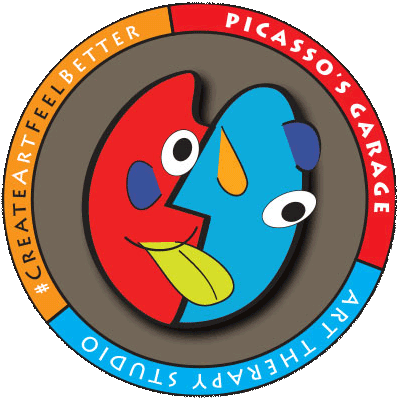ART THERAPISTS WORK WITH CHILDREN TO:
explore feelings
process emotional
resolve conflicts
build self-awareness
improve self-esteem
reduce stress and anxiety
symbolically expressions
What is ART THERAPY?
Art therapy combines the creative process and psychotherapy to help facilitate self-exploration and understanding. Using imagery, colour, and shape as part of this creative therapeutic process allows for the expression of thoughts and emotions that may be difficult to articulate otherwise.
Feeling upset or struggling with difficult emotions can be challenging for anyone, especially children. Art therapy is a valuable tool in helping people of all ages work through problems in a different way, imagine new solutions or endings, and generally feel better. By creating art, individuals can externalize their thoughts and feelings onto a page, providing distance between themselves and the issue they are grappling with.
When it comes to children, using art therapy assists them in expressing emotions they cannot put into words. The artwork they create acts as a starting point for dialogue that is tangible and easier for them to reflect on. This enjoyable and non-threatening approach to creating allows children to uncover and manage their feelings more effectively.
CREATIVE EXPRESSION AND BUILDING RESILIENCE
Art therapy has emerged as a promising therapeutic choice for promoting mental health and building resilience among youth. Recent research has highlighted the positive impact of creative expression, particularly through the arts, on mental health outcomes in young individuals. In a study by Martin (2022) that focused on the effects of an art-based program in schools, participating students demonstrated significant improvements in emotional regulation, self-esteem, interpersonal relationships, and problem-solving skills. These findings contribute to a growing body of evidence supporting the notion that increased access to arts-based programming can help enhance mental well-being in children (Watts et al., 2020).
Art activities have been found to activate neural pathways associated with emotion regulation and reward processing, leading to sustained improvements in mental well-being. Creating and sharing art provides a safe and supportive space for individuals to explore and express their emotions. However, it is important to note that the arts have faced challenges in recent years, particularly in Canadian schools, where the focus shifted towards the STEM model, reducing emphasis on arts education.
To address this gap, policymakers and educators need to recognize the value of the arts in promoting mental health resilience among youth. By increasing access to arts-based programming in schools, we can adopt a more comprehensive approach to supporting youth mental health. Through art therapy, students are given opportunities to tap into their creativity, develop coping strategies, express themselves authentically, and cultivate resilience in the face of challenges.
In conclusion, art therapy offers a powerful avenue for fostering creative expression and building resilience among young individuals. By recognizing the importance of the arts in promoting mental well-being, we can ensure that children have access to the benefits of art therapy, enabling them to develop crucial skills and emotional competencies that will support their overall mental health throughout their lives.
BENEFITS OF ART THERAPY:
1. Expressive | Art is an outward expression of energy, thoughts, and feelings.
2. Familiar | The process of creating art is familiar with need no special instruction to get started.
3. Whimsical | Working creatively in a non-judgmental and non-academic way allows for a joyful experience.
4. Positive | Being creative can be an enjoyable experience that positively shifts moods.
5. Externalizing | Creating artwork provides children with a medium to express complex issues that are often hard to articulate while providing a new perspective.
6. Empowering | Finding success in the creative process improves one's skills and appreciation of mastery, strengthening their self-esteem.
7. Concrete | Artwork remains with the child as a positive reminder of their creativity and accomplishments.
8. Mindful | Creating art provides an opportunity for individuals to practice focus and mindfulness.
Overall, art therapy is a valuable tool in helping individuals work through challenging emotions and issues. By creating art, individuals can find new perspectives, build confidence, and develop valuable coping mechanisms that can be applied to other areas of their life.
